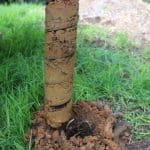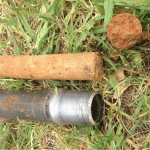Understanding Site Classifications in Melbourne: Why a Soil Report in Pakenham Matters
Every successful building project begins with a strong foundation — and that foundation depends on what lies beneath the surface. Whether you’re constructing a new home, extending an existing property, or developing a commercial site, understanding the soil conditions is essential. This is where professional soil testing and accurate site classifications come in.
At The 4 Spheres, we specialise in providing comprehensive soil reports in Pakenham and expert site classifications across Melbourne. Our geotechnical services help builders, engineers, and property owners make informed decisions that lead to safer, more cost-effective, and longer-lasting structures.

Why Soil Testing is Crucial Before Construction
A soil report — sometimes called a geotechnical or site investigation report — provides detailed information about the subsurface conditions of a site. It’s a scientific assessment that evaluates soil composition, reactivity, bearing capacity, and moisture characteristics.
Without accurate soil data, foundations may be over-engineered (wasting money) or under-designed (risking structural failure). A professional soil report ensures that the proposed design aligns perfectly with the ground conditions, reducing the risk of cracking, uneven settlement, or costly repairs in the future.
In Victoria, soil testing and site classification are not just best practices — they’re part of the mandatory process for obtaining a building permit. Local councils and certifiers rely on these reports to confirm that the building design meets Australian Standards, especially AS 2870 (Residential Slabs and Footings).
What a Soil Report Includes
A typical soil report investigates several critical aspects of a site, including:
-
Soil Composition: Identifying whether the soil is primarily clay, sand, silt, or a combination.
-
Soil Reactivity: Measuring how much the soil expands or contracts with changes in moisture.
-
Bearing Capacity: Determining the load the soil can safely support.
-
Groundwater Conditions: Checking the depth of the water table and drainage behaviour.
-
Presence of Fill or Organic Material: Detecting unsuitable materials that could compromise stability.
-
Foundation Recommendations: Suggesting the most appropriate footing or slab design.
This detailed evaluation ensures that the structure built above the ground is compatible with the natural conditions below it.
Understanding Site Classifications in Melbourne
Site classification is the process of categorising a site based on how reactive its soil is. The classification directly influences foundation design. In Melbourne and across Victoria, site classifications follow the Australian Standard AS 2870, which defines the following categories:
-
Class A – Mostly sand or rock, minimal movement expected.
-
Class S – Slightly reactive soil with low potential for movement.
-
Class M – Moderately reactive soil with moderate movement potential.
-
Class H1 / H2 – Highly reactive soils that expand and contract significantly.
-
Class E – Extremely reactive soils prone to large moisture-related movements.
-
Class P – Problem sites, often affected by fill, trees, or variable subsoils.
The classification tells engineers how to design the foundation so that it can handle the natural movements of the soil without damaging the structure.
For instance, if your property in Melbourne falls under a Class H1 or H2, your foundation will need additional reinforcement or deeper footings to handle the high reactivity. On the other hand, a Class A site might allow for a simpler, more affordable design.

The Importance of a Soil Report in Pakenham
Pakenham is one of Melbourne’s fastest-growing suburbs, with significant residential and commercial development underway. However, the region’s geological diversity means that soil conditions can vary widely — even between neighbouring blocks.
Some areas contain highly reactive clay that swells when wet and shrinks during dry spells, while others have sandy or silty soils that drain quickly. These differences can have a major impact on the performance of your building’s foundation.
Here’s why obtaining a Soil Report Pakenham is a smart and necessary step before construction:
-
Accurate Site Data: A professional investigation identifies specific soil characteristics, allowing engineers to design suitable foundations.
-
Cost Efficiency: Knowing your soil type helps avoid unnecessary overdesign, saving on construction costs.
-
Regulatory Compliance: A valid soil report ensures your project meets local building regulations.
-
Risk Reduction: Early detection of potential soil issues prevents future structural damage and maintenance expenses.
-
Long-Term Stability: Proper footing design ensures your building remains safe and stable for decades.
At The 4 Spheres, we combine local knowledge of Pakenham’s soil conditions with advanced testing techniques to deliver reliable, easy-to-understand reports for homeowners, builders, and developers alike.
Our Process: From Soil Testing to Site Classification
We follow a proven, step-by-step process to ensure every soil report and site classification meets the highest standards of accuracy and reliability.
1. Site Assessment
Our team begins by reviewing the property’s location, layout, nearby trees, and any known history of filling or excavation. Understanding these factors helps us plan the investigation effectively.
2. Field Testing
We conduct on-site borehole drilling or auger sampling to extract soil samples from various depths — typically between 1.5 to 3 metres or deeper for larger projects. During this stage, we record soil layers, moisture levels, and groundwater conditions.
3. Laboratory Analysis
Collected samples are tested in a certified laboratory to determine key properties such as plasticity index, grain size, and moisture limits. These data points reveal how the soil will behave under varying weather and load conditions.
4. Site Classification
Using test results and field observations, our geotechnical engineers assign an official site classification according to AS 2870 standards. This classification becomes a critical input for your structural engineer.
5. Reporting and Recommendations
We deliver a detailed soil report that includes borehole logs, laboratory results, and clear recommendations for footing or slab design. Every report is customised to suit your project’s size, complexity, and local environment.
Key Challenges in Melbourne’s Soil Conditions
Melbourne’s landscape is geologically diverse, with a wide range of soil types found across its suburbs. Understanding these local conditions is crucial for reliable site classifications in Melbourne.
Some of the most common challenges include:
- Reactive Clays
Much of Melbourne’s southeast — including suburbs like Pakenham — features reactive clay that expands and contracts with moisture fluctuations. Without proper foundation design, this can lead to slab heave, wall cracks, or uneven floors.
- Tree Influence Zones
Trees absorb moisture from surrounding soil, causing shrinkage in reactive areas. This effect extends well beyond the tree canopy and must be accounted for in foundation design.
- Fill and Disturbed Ground
Developed sites often contain fill or previously excavated soil that lacks consistent compaction. These zones may require additional testing or foundation reinforcement.
- Groundwater and Drainage
High groundwater levels can weaken bearing strength and cause hydrostatic pressure under slabs. Proper drainage design and waterproofing solutions are essential. At The 4 Spheres, we evaluate all these variables to ensure every project receives a comprehensive and precise assessment.
Why Choose The 4 Spheres
Choosing the right geotechnical partner can make all the difference between a smooth construction process and a costly one. Here’s what sets The 4 Spheres apart:
-
Local Expertise: We understand Melbourne’s and Pakenham’s diverse soil conditions better than anyone.
-
Accurate Reporting: Every soil report and site classification adheres to Australian Standards and local council requirements.
-
Timely Service: Our efficient field and lab processes ensure fast turnaround times without compromising accuracy.
-
Transparent Communication: We explain technical results in clear, simple language so you can make confident decisions.
-
Comprehensive Support: From initial consultation to final reporting, we guide you through every step of the process.
Our goal is to deliver clarity and confidence. Whether you’re a first-time homeowner or an experienced developer, you can trust The 4 Spheres to provide the foundation insights that safeguard your investment.
Final Thoughts
The strength of any building begins beneath the surface. A professional soil report in Pakenham and accurate site classification in Melbourne form the blueprint for safe, stable, and sustainable construction. Ignoring or cutting corners on soil testing can lead to foundation movement, structural cracking, or long-term damage — all of which are far more expensive to fix later. At The 4 Spheres, we believe every project deserves a solid foundation. Our team of qualified geotechnical specialists is committed to providing precise, practical, and compliant soil testing solutions for residential and commercial developments alike. If you’re planning to build in Pakenham or anywhere in the greater Melbourne region, start with confidence. Begin with a soil report from The 4 Spheres — because lasting strength starts from the ground up.
Comments
Post a Comment